In the quest for more effective treatments for Parkinson’s disease (PD), Gain Therapeutics, Inc. has announced encouraging results from the single ascending dose (SAD) part of its Phase 1 clinical trial of GT-02287. The novel small molecule therapy targets GCase, a lysosomal enzyme whose dysfunction is associated with GBA1 Parkinson’s disease.
Study Design and Objectives: The Phase 1 trial, conducted in healthy adults, aimed to evaluate the safety, tolerability, and pharmacokinetics of GT-02287. The study consisted of single ascending dose (SAD) and multiple ascending dose (MAD) cohorts. Notably, the SAD part of the trial enrolled 40 participants across five cohorts, all of which were completed without safety concerns or premature discontinuations.
Mechanism of Action and Preclinical Data: GT-02287 works by restoring the function of the lysosomal enzyme glucocerebrosidase (GCase), which is impaired in GBA1 Parkinson’s disease due to a gene mutation. Preclinical studies have demonstrated that GT-02287 effectively restores GCase activity, reduces neuroinflammation, and improves motor function in PD models. Additionally, the therapy significantly reduces plasma levels of neurofilament light chain (NfL), a biomarker associated with neurodegeneration.
Positive Results and Safety Profile: GT-02287 demonstrated promising results in the SAD part of the Phase 1 study, with no serious adverse events reported. The therapy was well tolerated across all dose levels, indicating a favorable safety profile. These findings support GT-02287’s potential as a first-in-class treatment for GBA1 Parkinson’s disease.
Future Directions: Gain Therapeutics is optimistic about the prospects of GT-02287, and plans to complete the multiple ascending dose (MAD) phase of the Phase 1 trial in Q2. CEO Matthias Alder expressed confidence in the therapy’s potential, emphasizing the company’s commitment to advancing its clinical development.
Chief Medical Officer Jonas Hannestad highlighted GT-02287’s unique mechanism of action, which targets the underlying cause of Parkinson’s disease rather than just managing symptoms. Gain Therapeutics aims to initiate a first-in-patient cohort in the Phase 1 trial later in 2024 to further investigate the therapy’s efficacy in PD patients.
Funding and Collaborations: Gain Therapeutics’ efforts in Parkinson’s disease research have received support from various organizations, including The Michael J. Fox Foundation for Parkinson’s Research (MJFF), The Silverstein Foundation for Parkinson’s with GBA, and the Eurostars-2 joint program. These collaborations underscore the significance of GT-02287 in addressing the unmet needs of PD patients.

